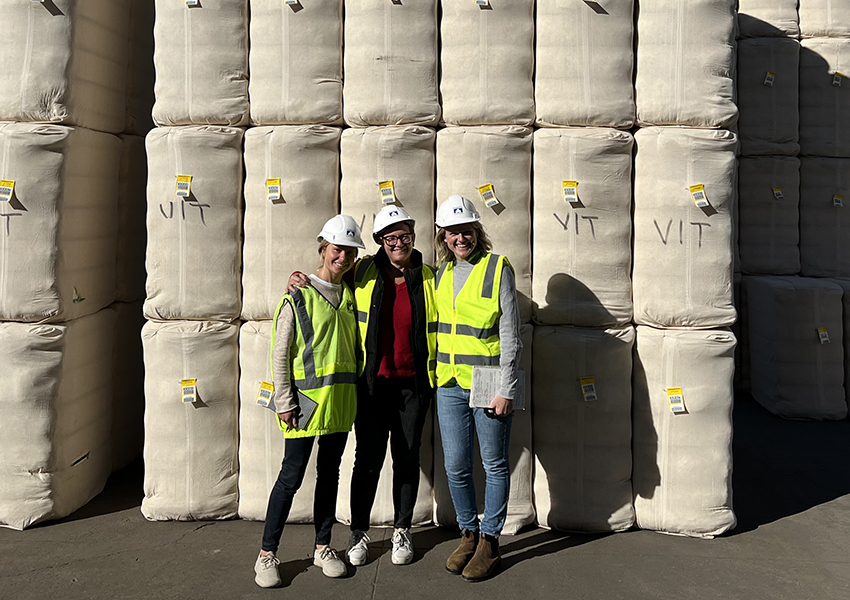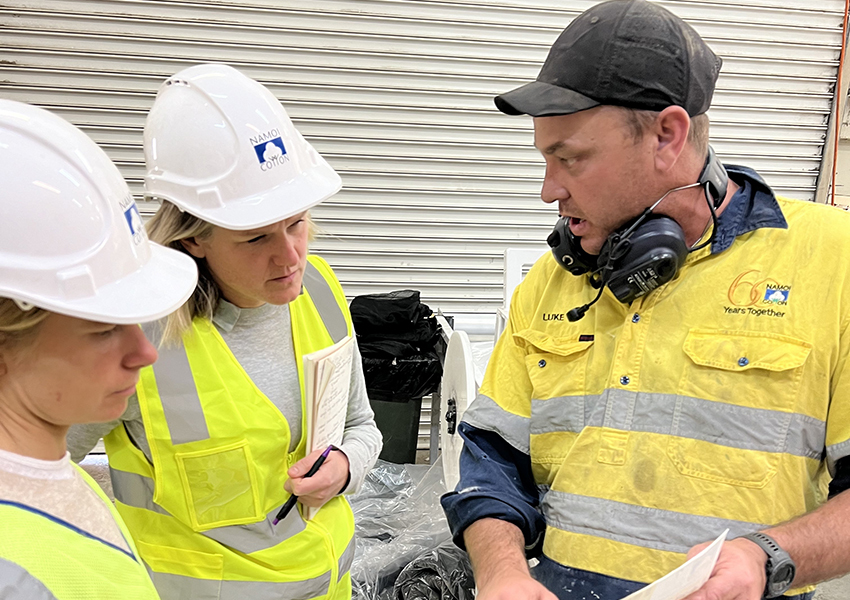Traceability research project to identify solutions
Work has commenced on a traceability research project to scope possible technical options for a solution to better trace Australian cotton through the supply chain.
The “Investigating Traceability Solutions for Australian Cotton” project, coordinated by Cotton Australia, is funded by a grant from the Queensland Government and is one of the first steps recommended by the Strategic Roadmap for Australian cotton under the “traceability” pillar.
The Australian Cotton Strategic Roadmap Report, delivered at the end of 2023, was developed by a cross-industry, multi-stakeholder process to plan for the cotton industry’s future under five key topics:
- Sustainably-certified cotton
- Traceability
- Data
- Human rights
- Marketing/ promotion
The Cotton Research and Development Corporation (CRDC) is supporting the second phase of the project by investing in the piloting of at least one traceability solution identified by the research.
According to Cotton Australia’s Cotton to Market Lead Brooke Summers, traceability of fibres will soon become an issue of market access, with new initiatives and legislation in premium markets such as the EU and U.S. requiring products to be traced from raw material production through to finished product.
“For example Digital Product passports being introduced to the EU as early as 2025 will allow consumers to scan on-product barcodes to get information about the production of the product from raw materials such as cotton, right through the manufacturing process, along with the social and environmental governance credentials attached to the products,” Brooke said.
“Retailers and brands also require the tracing of certified cotton, such as myBMP and Better Cotton in order to make accurate claims on products. Cotton Australia believes that by tracking certified cotton from Australia there may be additional value that can be unlocked for farmers that have invested in sustainability,” she said.
Although a bale of Australian cotton can be traced from the farm to the spinner now, there are multiple systems across the 40 cotton gins that don’t integrate or easily provide the information needed by customers.
“Our main competitors in the U.S and Brazil can provide Country of Origin tracking now where bales can be scanned for origin and quality data. We need to develop an integrated, simple system that our farmers, gins and merchants can use that will ensure we meet future market access requirements, stay competitive and create more value for our farmers and the industry.
“Traceability is one of the keys to unlocking value for our farmers and without an integrated and transparent system we may have market access issues in future. That said, if growers are expected to foot the bill for a traceability system, it will need to provide them clear and transparent value,” Brooke said.
This project is a first step in identifying the traceability needs of our supply chain from farm, merchants, spinners and brands and identifying the traceability technologies that will deliver the best solution for Australian cotton.
There are many technologies on the market including digital platforms, blockchain systems, scientific markers and DNA and elemental testing available to trace cotton and other fibres.
“Traceability technology is a fast changing sector, with some of the coming global rules still unclear. The challenge is to assess and identify a solution or solutions that deliver value, are future fit, most likely to be implemented across the industry and can be plugged into the various other systems already being used by the supply chain.
The ““Investigating Traceability Solutions for Australian Cotton” project will include wide consultation with industry including farmers, ginners, merchants industry bodies and supply chain actors and will be delivered in three main phases by consultants, Beyond.
- Identify traceability system requirements
- Research technical options
- Pilot at least one technology in the 2024-25 cotton season
If you’re interested in having a say, please contact Brooke Summers at cotton2market@cotton.org.au


